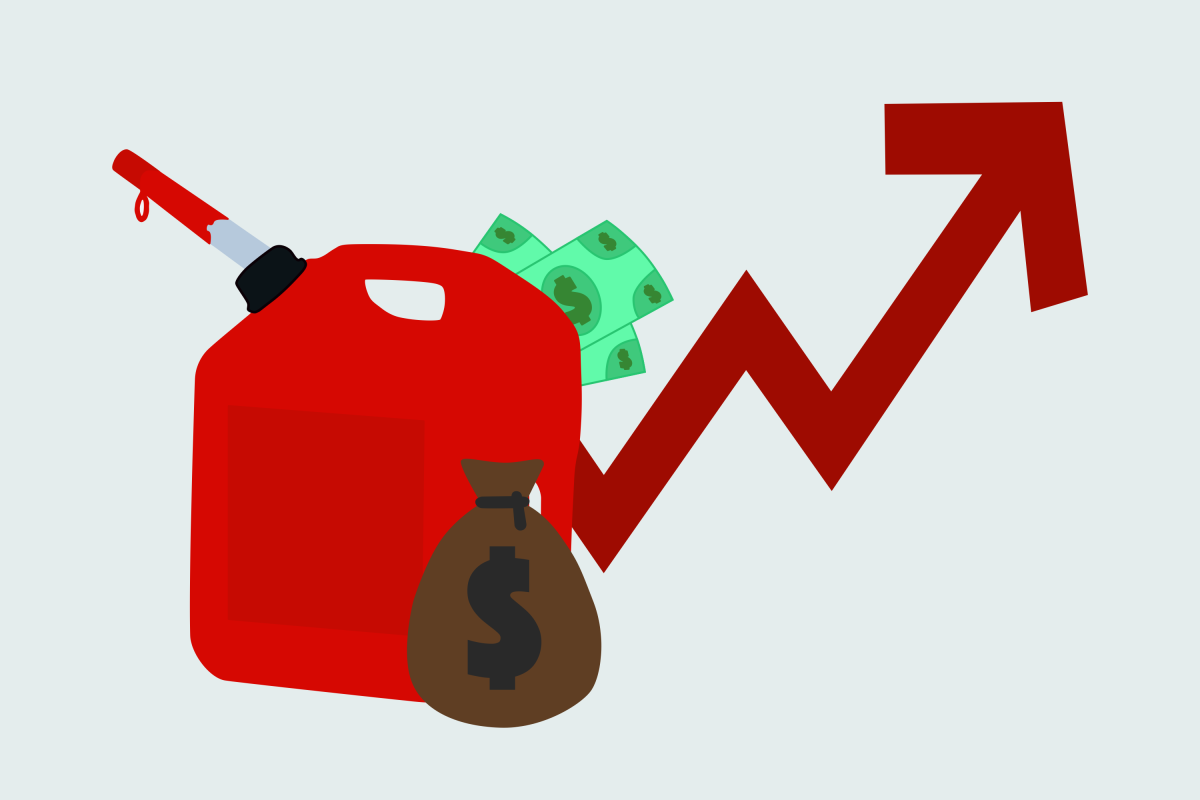The origins of expensive gas
While many Americans are emotionally impacted by the ongoing war in Ukraine, it has impacted all Americans in a somewhat unexpected way. Namely, the record breaking gas prices nearly the entire country is facing at the pump.
U.S. President Joe Biden has mostly blamed oil companies for unfairly price gouging consumers just because they can. While this is largely true, as gas prices have stayed high even as the price of crude oil has fallen, Biden is playing the blame game since he knows most of the blame is ultimately on himself.
Through a series of policy priorities and treating oil supply management as an afterthought, Biden’s administration has put environmental policy above economic concerns. However, this means Biden has to deal with the blowback of rising prices.
Oil prices were already in murky territory directly following Russia’s invasion, since Russia is a major oil exporting nation, but the president’s decision on March 8 to embargo all Russian oil only added more fuel to the fire. Russian oil and petroleum products make up 8% of America’s total imports, but notably, well over 50% for most Eastern European nations who have predictably chosen to not cripple their energy supply with a Russian embargo.
Of course, President Biden and his administration are smart enough to realize the aftershocks this action would have on gas prices, and yet they still managed to display remarkable incompetence. Biden asked America’s key oil supplying ally, Saudi Arabia, to increase oil production, which the Saudis have denied since they benefit greatly from a spike in prices. Meanwhile, Saudi Crown Prince Mohammed bin Salman has been declining Biden’s calls for weeks since Russia’s invasion.
Talk about getting left on read.
And yet, the crown prince made time for Vladimir Putin, calling him on March 4, when he made it clear that Saudi Arabia’s priority is maintaining the Organization of Petroleum Exporting Countries (OPEC) and OPEC Plus. Russia, being a part of OPEC Plus, ranks third in global exports.
The U.S. used to be far more reliant on Saudi oil and OPEC decades ago with the majority of American gas coming from abroad and from OPEC countries. However today, thanks to the rise of fracking and increases in oil production in North America, the U.S. gets 70% of its foreign oil from Canada.
Unfortunately, the gas guzzling American economy is still reliant on foreign oil, especially after Biden used an executive order to cancel the Keystone XL pipeline on his first day of office. The pipeline was slated to expand the oil trade with Canada, reducing America’s reliance on oil from nations with less than stellar human rights records.
In fact, the volume of oil from the XL project alone could have replaced all American oil imports from Russia, and then some. This policy decision marks yet another way that the Biden administration has mismanaged the oil supply.
With midterm elections coming, Biden has tried to lessen the damage, particularly by tapping into the oil reserve. The current price issues are fundamentally a supply and demand problem, as Biden himself recognizes in his letter to the Saudis. Yet supply issues can’t magically be solved with short term fixes.
While companies have insulated themselves from the volatility in the oil market by pushing the costs onto consumers, the corporate exploitation narrative from the White House isn’t very persuasive.
This is especially true considering similar gas price gouging didn’t occur under the Trump Administration, which was overtly pro-corporate and pro-oil. In fact, the former oil CEO of ExxonMobil, Rex Tillerson, was Trump’s first Secretary of State.
Indeed, it seems like Biden is caught between balancing environmental concerns that helped him get elected with the equally real concerns that the current gas price spike (perhaps also tied to the current record inflation) will heavily cost the Democrats in the midterm elections.







































